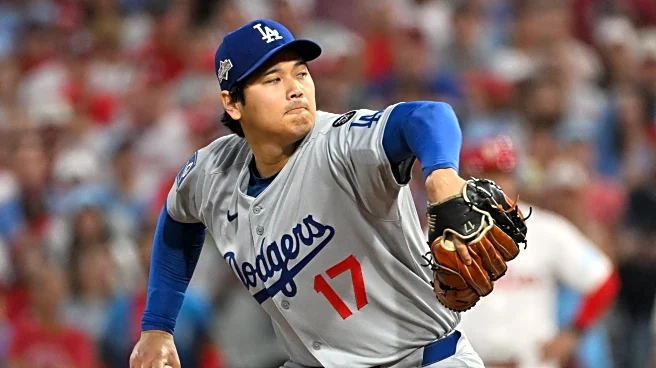One often hears in football commentary about how the quarterback must have a short memory, not dwelling on his mistakes. On a baseball diamond, a starting pitcher goes through a similar process, and Shohei Ohtani’s outing was a perfect example of that. A three-run second inning from the Phillies meant that Ohtani, and in turn, the Dodgers, pitched while trailing for the majority of this game. Now, it’s one thing to pitch while trailing in the playoffs; it’s something else entirely to do it when your
offense is noticeably struggling against one of the finest pitchers in the entire sport, which was the case with the Dodgers versus Cristopher Sánchez.
That one bad inning entailed some genuine struggles from Ohtani, but three runs were a bit harsh, as the Phillies optimally strung together plate appearances to score three with only one extra-base hit. Assuming he was able to reset, there was no reason Ohtani couldn’t continue to have a lengthy and successful outing, particularly when you account for what he had already accomplished in the first. The Dodgers starter opened the game with a clean inning against the gauntlet of Trea Turner, Kyle Schwarber, and Bryce Harper, inducing four whiffs and a strikeout.
That first inning against the Phillies’ premier hitters set the tone for what was an even more dominant performance than the final stat line probably shows. In his full six innings of work, Ohtani faced those three outstanding hitters a total of nine times, and not only did they not reach base safely against him, but they struck out in over half of their at-bats against the Dodgers’ starter.
With all due respect, it’s one thing to dominate at home against a Reds hitter without an elite hitter, as we’ve seen Dodger starters do. It’s something else entirely to make your postseason debut at Citizens Bank Park, no matter how experienced you are, and flat-out annihilate this group of hitters.
Dictating how much of this was deliberately a part of the plan and how much of it came from feel is not particularly easy, but Ohtani threw a curveball in his plans, bumping up his usage of public enemy number one. Going against his normal tendencies, Ohtani pounded curveballs to lefties as he had that pitch working in a way it’d make Clayton Kershaw proud. Showing no interest in feeding Schwarber four-seam fastballs after their first encounter, Ohtani relied on the off-speed stuff to get the NL home run leader.
Between the Phillies’ 3-0 lead and Sánchez’s pitching, Ohtani knew there was no margin for error. In one rare instance, Philadelphia had the chance to add to its lead, but a curveball saved Ohtani from a two-on, two-out situation against Kyle Schwarber.
In this particular at-bat, Ohtani threw three balls inside the zone and another three outside. Known for his great eye, Schwarber was able to spit at the pitches off the plate, but the three times Ohtani went inside the zone, thrice he swung the bat, and not once did he make contact. A slider and fastball that could’ve been located better, he didn’t reach, and then this gorgeous curve—he had no chance.
This sequence perfectly encapsulates the essence of Ohtani’s dominance against the Phillies. Across three at-bats, Ohtani threw eight balls inside the zone to Schwarber; he swung the bat seven times, and he whiffed on six occasions. The sheer quality of stuff one must possess in order to accomplish such a feat as a starting pitcher is ineffable.
Postseason baseball doesn’t respect your narratives, wishes, fairness, or any other thing you might claim to hold dear. That means that when you do get the chance for it all to be neatly tied into a bow, you should embrace it. After what he did, it would’ve been unfair for Ohtani to come out on the losing end, as it appeared to be the case when he threw his final pitch. Not only did that change, but with Los Angeles stacking all their five runs in one inning, Ohtani suddenly became the man in line for the win, a much-deserved victory.
The win only came because the Dodgers held on to a two-run lead, and they did so as unconventionally as a team with their current bullpen ought to do. As he indicated before the game, Dave Roberts indeed used Tyler Glasnow in relief. Although baserunners came in bulk as he played fast and loose with his command, Glasnow did get five huge outs and got bailed out by Alex Vesia to wrap the eighth. Having thrown 34 pitches and with four days of rest until Game 4, he should start it without any issues. Speaking of starters in relief, this bullpen’s secret, not-so-secret weapon shut the door in the ninth.
Those three runs over six innings won’t go down in any history book, but there was something special about Ohtani’s performance for all the reasons listed above.

















